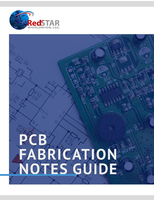IPC Applauds Passage of RAMI Act by Congress.
Share:
Press Release Summary:
IPC commended Congress for its bipartisan passage of Revitalize American Manufacturing and Innovation (RAMI) Act and called upon President Barack Obama to sign it into law. Enactment of said legislation, which will authorize National Network for Manufacturing Innovation (NNMI), has been top policy priority for IPC and its member companies. First proposed by President Obama, NNMI will consist of multiple advanced manufacturing centers focused on different technology issues.
Original Press Release:
Pro-Advanced Manufacturing RAMI Act Passes Congress
IPC Commends Congress for Passing Bipartisan Advanced Manufacturing Legislation
BANNOCKBURN, Ill. — IPC – Association Connecting Electronics Industries® today commended Congress for passing the Revitalize American Manufacturing and Innovation (RAMI) Act and called on President Barack Obama to sign it into law.
“On behalf of IPC and an estimated 800,000 people working in our 2,200 U.S. member companies, I applaud Congress for coming together in a bipartisan manner to pass this forward-thinking legislation,” said John Mitchell, president and CEO of IPC. “IPC thanks the House and Senate sponsors for working in concert with congressional leadership and appropriators proving that the United States can still tackle the nation’s long-term challenges, including technology innovation, economic competitiveness and job growth.”
Enactment of the RAMI Act has been a top policy priority for IPC and its member companies. This legislation will authorize a National Network for Manufacturing Innovation (NNMI). This network, first proposed by President Obama, will consist of multiple advanced manufacturing centers focused on different technology issues to accelerate, strengthen and grow advanced manufacturing and jobs in the United States. IPC members – who manufacture, assemble, specify and design printed circuit boards and electronics assemblies – expect to be key partners in a number of the new institutes that will be established under the legislation.
Senators Sherrod Brown (D-OH) and Roy Blunt (R-MO) and Representatives Tom Reed (R-NY) and Joseph Kennedy (D-MA) introduced the RAMI Act (S. 1468/H.R. 2996) during this Congress and led the way for its final passage. In September, the bill passed the House with the support and leadership of House Science, Space and Technology Committee Chairman Lamar Smith (R-TX), who also worked with the sponsors and appropriators to include the bill in the just-passed omnibus spending package.
“This bill focuses our nation’s strengths toward a common goal: revitalization of American manufacturing and innovation,” Senator Brown said. “When American manufacturing moves to other countries, we don’t just lose production – we lose innovation. A Network for Manufacturing Innovation would foster public-private partnerships that give small businesses, industry leaders and research institutions the tools they need to compete on a global scale. These regional, industry-led hubs will leverage local expertise and will create thousands of high-paying, high-tech manufacturing jobs for American workers. We’ve seen it work in Youngstown, now it’s time to advance this effort nationwide.”
"Our bill is about ensuring America's future as a world leader in advanced manufacturing by fostering two things: innovation and jobs," said Representative Reed. "We are creating high-tech, high-paying manufacturing jobs not just for people today but for their children and for their children's children – so that generations of Americans far into the future will have opportunities to create and innovate here at home."
Viewed as a critical piece of legislation in America’s efforts to expand its manufacturing base in leading technologies, the RAMI Act will give direction for federal efforts to spur innovation, bridge the gap from basic research and development to commercialization and capitalize on advanced manufacturing technologies.
About IPC
IPCÂ (www.IPC.org) is a global industry association based in Bannockburn, Ill., dedicated to the competitive excellence and financial success of its 3,500 member companies, which represent all facets of the electronics industry, including design, printed board manufacturing, electronics assembly and test. As a member-driven organization and leading source for industry standards, training, market research and public policy advocacy, IPC supports programs to meet the needs of an estimated $2 trillion global electronics industry. IPC maintains additional offices in Taos, N.M.; Washington, D.C..; Stockholm, Sweden; Moscow, Russia; Bangalore and New Delhi, India; Bangkok, Thailand; and Qingdao, Shanghai, Shenzhen, Suzhou, Chengdu and Beijing, China.




